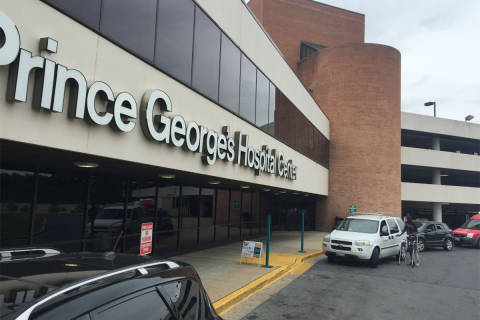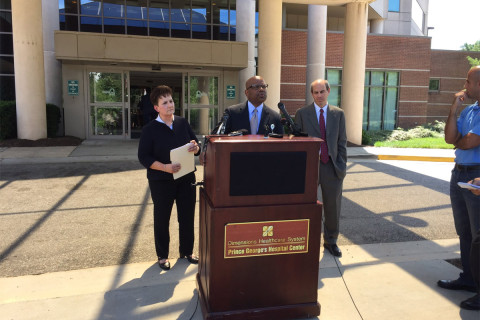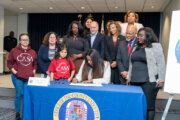WASHINGTON – After a second case of potentially life-threatening bacteria was detected in two infant patients at Prince George’s Hospital Center, the Centers for Disease Control and Prevention is now stepping in to help identify the cause of the contamination.
One of the babies who tested positive for pseudomonas bacterium is sick and being treated at another hospital for the infection while also fighting the complications of a premature birth. The second is not showing symptoms. The hospital has also relocated three other infants.
“Troubling and puzzling,” are the adjectives Dimensions Hospital systems CEO Sherry Perkins used to describe the second contamination of the neonatal intensive care unit in three months.
Pseudomonas bacterium is relatively common, but can be deadly to infants with compromised immune systems. The bacterium has not been detected in higher levels than previously registered at the hospital, Perkins said.
After the hospital announced its discovery Wednesday, the CDC’s Epidemiology Aid team joined the investigation. The team, comprised of physicians, lab experts and nurses, are on-hand to work with hospital and county investigators to identify the source, which is not the same as it was the first time around.
In August, Prince George’s Hospital Center closed its NICU for 60 days after infants tested positive for the same potentially dangerous bacterium. Investigators later determined the pseudomonas bacterium was getting into the NICU through its water supply that was subsequently cleaned, flushed and continually monitored.
Less than a month after reopening, a second contamination of the same bacterium has infected more infant patients, but the source remains a mystery.
“We have now a reoccurrence of pseudomonas bacterium in our babies and in our NICU and an absence of pseudomonas in the water to the NICU,” Perkins explained.
Epidemiologist Joan Hebden said health authorities have not detected the bacterium in any of the unit’s sinks. She said they are monitoring 30 other sinks at the hospital.
Some had to have hardware replaced to ensure cleanliness.








